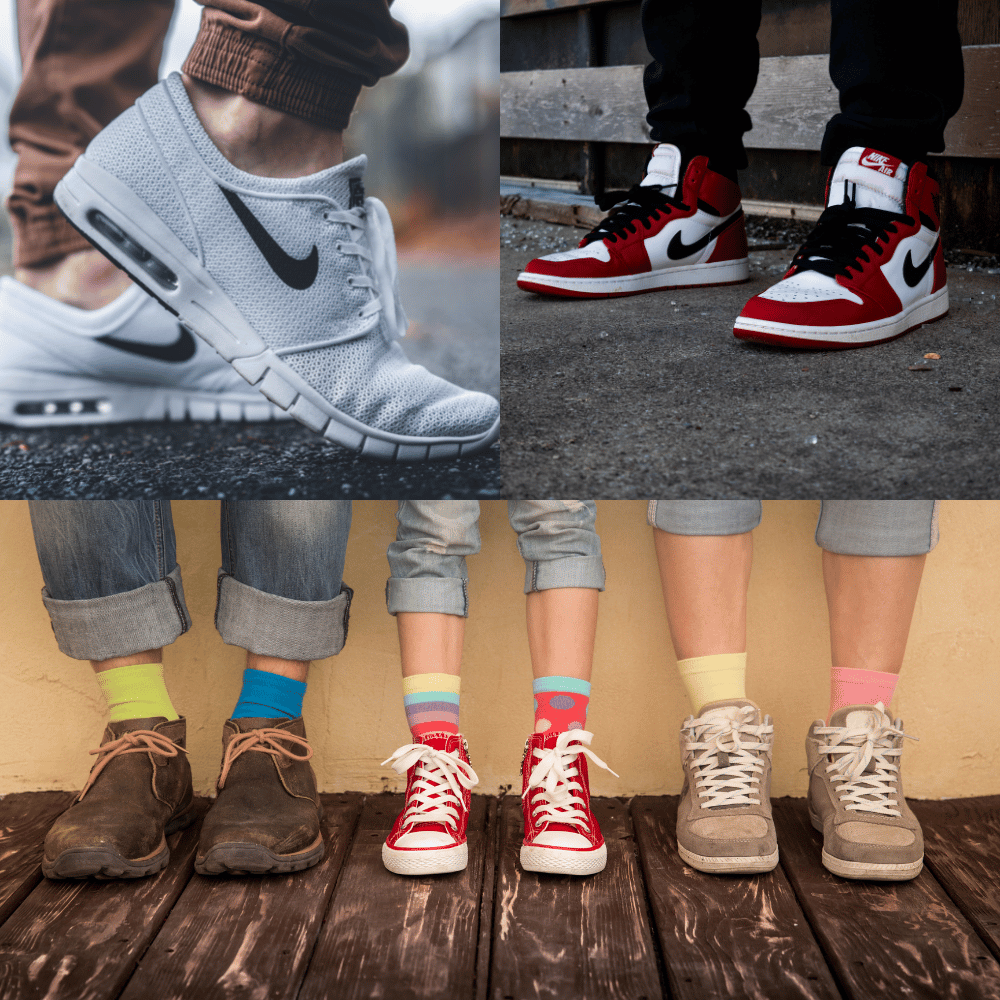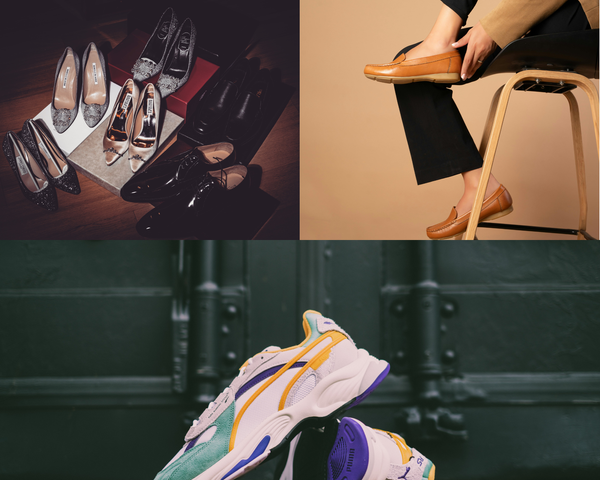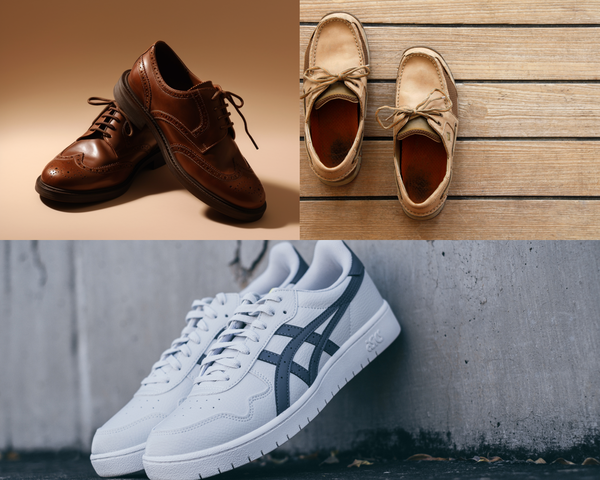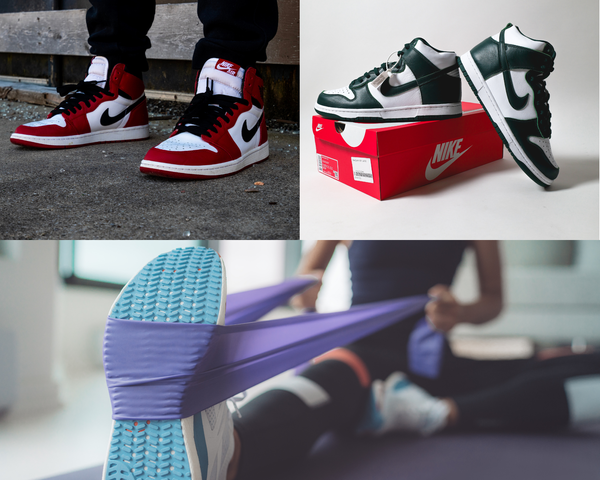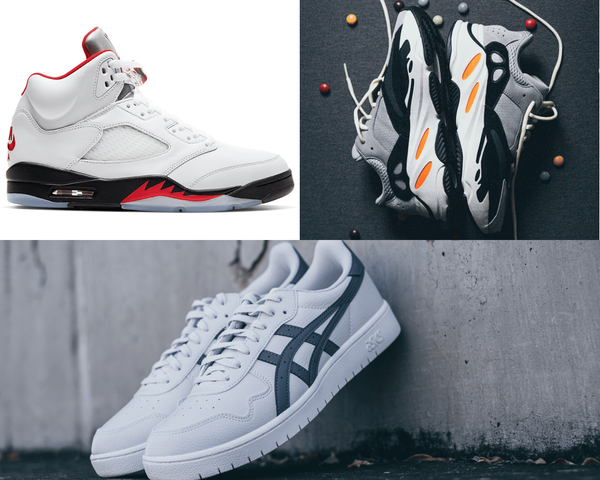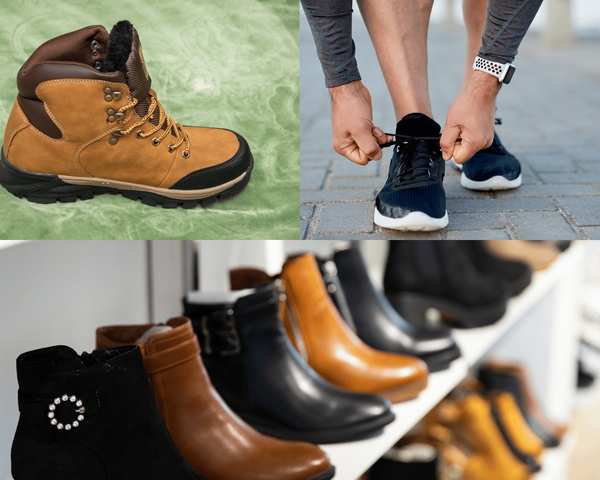Neuropathy can be a debilitating condition, often leading to pain and discomfort in the feet. For those suffering from this nerve-related issue, finding the right footwear is not just a matter of comfort, but a crucial step in managing symptoms and maintaining mobility. In this comprehensive guide, we'll explore the best types of shoes for those dealing with neuropathy.
Key Takeaways:
- Proper footwear can significantly alleviate neuropathy symptoms.
- Features like extra cushioning, wide toe boxes, and supportive insoles are essential in diabetic neuropathy shoes.
- Compression socks for neuropathy can complement the benefits of the right shoes.
Understanding Neuropathy and Foot Health
Neuropathy, particularly diabetic neuropathy, affects the nerves in the feet, leading to numbness, tingling, and pain. The loss of sensation increases the risk of foot injuries, which can go unnoticed due to the numbness. Therefore, selecting the right peripheral neuropathy footwear is not just about comfort; it's about protecting your feet from further harm.
The Importance of Proper Fit
A proper fit is paramount when it comes to neuropathy footwear. Shoes that are too tight can exacerbate symptoms, while those that are too loose can lead to blisters and sores. It's essential to have your feet measured by a professional and to try on shoes later in the day when feet are typically more swollen to ensure the best fit.
Key Features of Neuropathy-Friendly Shoes
When shopping for diabetic neuropathy shoes, look for features like a wide toe box, which provides space for the toes to move freely. Extra cushioning can help absorb shock and reduce pressure on the feet. A firm heel counter and supportive insoles are also important to stabilize the foot and distribute weight evenly.
The Role of Materials in Comfort and Support
The materials used in neuropathy footwear should be breathable to prevent moisture buildup, which can lead to infections. Soft materials like leather or canvas can accommodate swollen feet better and reduce irritation. Shoes with adjustable closures such as Velcro or laces can also help in achieving a snug yet comfortable fit.
Why Arch Support Matters best shoes for neuropathy types in feet
Arch support is crucial in peripheral neuropathy footwear. It helps distribute pressure across the foot, reducing stress on the nerves and minimizing pain. Shoes with good arch support can also prevent overpronation or supination, which can lead to further foot issues.
The Benefits of Extra Depth Shoes wide toe box
Extra depth shoes are designed with more room to accommodate swollen feet or orthotics. They can be particularly beneficial for those with neuropathy, as they allow for custom inserts that provide additional cushioning and support where it's needed most.
Orthotics and Custom Inserts dress shoes
For many with neuropathy, over-the-counter inserts may not provide enough support. Custom orthotics, designed to fit the contours of your feet, can be a game-changer. They can help correct foot alignment, reduce pressure points, and improve overall foot function.
The Advantage of Non-Binding Uppers walking shoes
Shoes with non-binding uppers are designed to reduce pressure on the top of the foot, which can be sensitive due to neuropathy. Look for shoes with soft, stretchable uppers that can adapt to the shape of your feet without causing constriction.
The Importance of Shock Absorption
Good shock absorption in shoes can lessen the impact on the feet with each step. This is particularly important for those with neuropathy, best dress shoes, flat feet, as their feet are more susceptible to injury. Look for shoes with thick, cushioned soles that can absorb shock effectively.
How to Choose the Right Sole
The sole of the shoe is just as important as the upper. A sole with a good grip can prevent slips and falls, which are particularly dangerous for those with neuropathy. However, the sole should also be flexible enough to allow for natural foot movement.
The Role of Compression Socks for Neuropathy
Compression socks for neuropathy can be worn in conjunction with the right shoes to improve circulation and reduce swelling. They should provide graduated compression, be of the correct size, and be made of breathable materials to be effective without causing discomfort.
The Impact of Shoe Weight
Lightweight shoes can reduce fatigue and make it easier to stay active, which is important for overall health. However, they should not compromise on support and cushioning. Finding the right balance is key for those with neuropathy.
When to Replace Your Shoes
Shoes that are worn out can lose their supportive features, which is why it's important to replace them regularly. For those with neuropathy, shoes for neuropathy, muscle weakness, pain free supportive shoes, athletic shoes orthotic insoles it's recommended to inspect shoes frequently for any signs of wear and to replace them before they start to break down.
Where to Find Neuropathy-Friendly Shoes
There are many brands that specialize in neuropathy-friendly footwear. It's worth visiting a specialty store or consulting with a podiatrist to find the best options. Online resources can also be helpful, but make sure there's a good return policy in case the shoes don't fit well.
Summary
Choosing the right shoes for neuropathy involves considering factors like fit, support, cushioning, and materials. Features such as wide toe boxes, shock absorbing heel cushion, supportive insoles, choosing shoes, and extra depth can make a significant difference in comfort and foot health. Remember to complement your footwear with compression socks for neuropathy to enhance the benefits. Regularly replacing your shoes and consulting with professionals can also contribute to better foot care for neuropathy patients.
FAQ Section
Q: Can the right shoes really make a difference for neuropathy?
A: Absolutely. The correct footwear can alleviate pressure on the feet, provide support, and reduce the risk of injury, firm heel counter all of which are crucial for managing neuropathy symptoms.
Q: How often should I replace my neuropathy-friendly shoes?
A: It's generally recommended to replace your shoes every 6 to 12 months, foot pain, depending on how often you wear them and the level of wear and tear. Inspect your shoes regularly for signs of breakdown.
Q: Are custom orthotics worth the investment for neuropathy?
A: For many people with neuropathy, custom orthotics can provide tailored support and cushioning that over-the-counter options cannot match. They can be particularly beneficial for those with specific foot deformities or severe symptoms.
